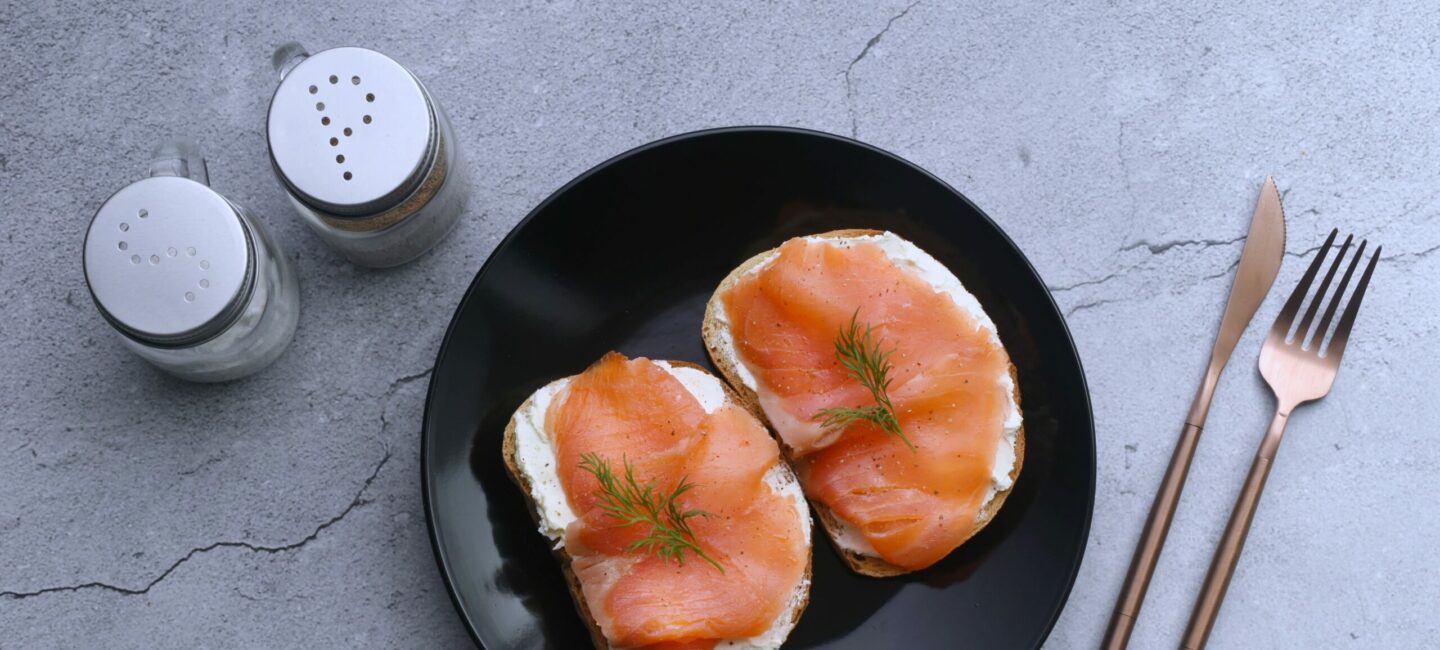
Taking a Bath After a Membrane Sweep: Precautions and Advice

The holiday season often goes hand in hand with smoked salmon! Whether served as an appetizer or a starter, this dish delights the taste buds of many guests.
A question then arises: can you eat smoked salmon during pregnancy without risk? May has the answer.
Unfortunately, eating smoked salmon during pregnancy is generally not recommended. We say “generally” because the strict no-smoked-salmon rule is not advocated by all healthcare professionals. However, its consumption is indeed discouraged by the French Agency for Food, Environmental and Occupational Health & Safety (ANSES) and the French National Authority for Health (HAS).
Although smoked salmon is not recommended during pregnancy, some health experts might say “why not,” as long as it is vacuum-packed and purchased from a supermarket. Why? Because it is better protected from bacteria and has undergone strict safety checks before being placed on the shelves. In general, it is always safer to consume industrially prepared products during pregnancy for these reasons.
❗ Please note, nothing guarantees that it is entirely risk-free. The decision is yours.
The main risk of eating smoked salmon during pregnancy is contracting listeriosis, an infection caused by a bacterium called listeria. This bacterium poses a danger to the fetus as it can lead to premature birth, miscarriage, or severe neonatal infection. The incubation period can last up to two months, and the bacteria may cause fever. Fortunately, there is an antibiotic treatment whose effectiveness depends on how quickly it is administered (the sooner, the better), but even with treatment, the infection can sometimes be fatal for the fetus. Therefore, caution is essential.
Overall, the consumption of raw or undercooked products, which are often found on holiday tables, should be avoided due to potential bacterial infections (in addition to listeriosis, there is also a risk of contracting toxoplasmosis or salmonella). This includes foie gras, taramasalata, undercooked meats and fish, unpasteurized cheeses (such as camembert, brie, coulommiers…), and desserts containing raw eggs (such as chocolate mousse, tiramisu, or custard).
These recommendations may seem very restrictive and depressing, we understand. That’s why May offers you delicious holiday recipes that are safe during pregnancy on the app! You’ll find recipes by Marion Destannes, including shrimp, avocado, and mango verrines, as well as pink praline rolled Yule logs!
“But when a fish is smoked, isn’t it as if it were cooked?” Unfortunately, not really… Only cooking at 65°C (149°F) or higher ensures sufficient safety precautions. So, it’s safe to go ahead if the salmon is properly cooked! To be sure, the flesh should be opaque and flake easily when pressed with a fork or knife. Enjoy your meal.
Want to learn more? Feel free to download the May app, where you’ll find plenty of resources to support and guide you throughout your pregnancy.
Good news! Cooked salmon offers many benefits for pregnant women:
As you can see, all these nutrients are excellent and essential for fetal development.
Additionally, ANSES recommends eating fish twice a week (including fatty fish such as mackerel, sardines, anchovies, smoked trout, and herring) and diversifying the species of fish you eat.
In summary, it is best to avoid eating smoked fish during pregnancy to reduce the risk of bacterial infection. If you’re missing smoked salmon, remind yourself that it’s only temporary and you’ll be able to enjoy it again once your baby is born.
**
This text was translated from French by an artificial intelligence. The information, advice, and sources it contains comply with French standards and may therefore not apply to your situation. Make sure to complement this reading by visiting the May US/UK app and consulting the healthcare professionals who are supporting you.
These resources might interest you

Taking a Bath After a Membrane Sweep: Precautions and Advice


Coloring your hair while pregnant: what precautions should you take?